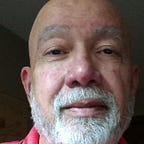In the eighties, Mrs. Orton, a kindergarten teacher at our twins’ school, introduced a metaphor for the purpose of education with “You are not your brain”. The analogy was your brain is the computer, and the “you” is the operator of that brain. Brains of her students came in a host of different capacities, but the intent was to educate the “you” to operate that brain as a moral agent. This was extremely appealing to me at the time. It was a variant of Plato’s Charioteer allegory or Descartes’ “I think therefore I am”.
I have evolved (or devolved) from that thinking as time progressed, subscribing more to a deterministic view of the universe. The implication is that we do not possess free will, a notion that came to me from a variety of courses in philosophy and psychology. Yet, I feel that I have the choice of writing or not writing this post and I’m “choosing” to write it. Current theories espoused by Robert Sapolsky suggest that an action in any given moment is “determined” by what I experienced 1 second, 1 minute, 1 day… going back to the big bang. Although it is an enjoyable act of mental masturbation, the more real issue is about relationships.
We have a view of ourselves as being generally good. I’ve seen posts that question whether Hitler considered himself a bad person. That same notion could apply to your current favourite villains, Netanyahu, Hamas leadership, a certain orange person south of the border, or our friend Vlad.
Starting with ourselves, we have a positive self-image and that is true of all but for a few with severe mental health issues. Yet we know of people that see us as something else. Flip the picture and look at your view of friends and acquaintances, particularly the ones you see as flawed. Having indulged in some mental gymnastics, I have concluded that these views, us of others, and others of us, are really caricatures of the “true” person.
The implication of this is interpersonal relationships of respect (love) or conflict. My thesis is that we spend a lot more brain power on the conflict side of the equation based on that caricature of the person or people. In a racist context, rather than caricature, we use prejudice or bias, so all I’m doing is using a different word that amplifies the cartoonish nature of our biases. Like a cartoon, we assign outsized versions of a flaw, and apply that to the “whole” individual. Thus, I am basically assigning racist, misogynist, white supremacist etc., based on some interaction that I’ve had with that person. Having come to that conclusion, I am unable to interact with that person to find many other positive attributes in that complex individual.
Once again, flipping the image to yourself, how often have you viewed another’s assessment of you, as being unfair? Our personal psychologies tend to brush this off with a “who cares what they think of me”, but it does matter to our mental well being.
Summary judgements are a useful tool for sorting out the massive amounts of information we need to assess in our relationships, though many a time they are wrong. My sage advice in this new year is to open ourselves to “dialog without anger”. We can talk to adversaries. In fact, we MUST talk to adversaries. It is only through this mechanism that we might appreciate the complexity of the person and develop respectful interactions with a person you may have “cast off” you’re a-list. The key is doing this in the absence of anger. When one can appreciate the value of these interactions, we can shed many other illusions of success.
If only it was that easy to follow my own advice.
